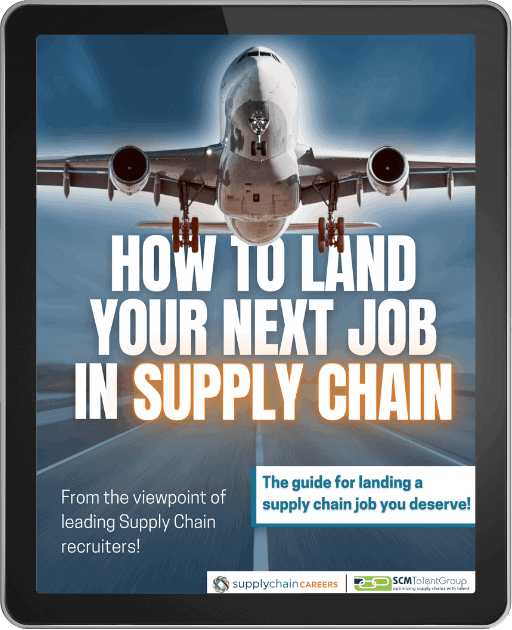
Transportation Manager Job Description
Transportation Manager Job Description
If you’re producing and moving goods, you need a transportation manager. These individuals handle and understand how goods are moved throughout the supply chain and all modes of transportation therein. Work in this field requires knowledge of the mechanics and logistics of moving freight across all types of routes. Shipping, trucking, and railroad freight all come under the watchful eye of these individuals.
These roles oversee staff, manage budgets, create and manage expectations from manufacturers to shippers, to retail outlets. They have to also understand route efficiencies and possible delays. Problem-solving skills come into play to solve for or forecast delays and disruptions. Scheduling deliveries and arrivals all while ensuring the safest and most efficient environment possible are duties essential to the success of a business.
Transportation managers interact with many stakeholders internal or external to their company. This will include internal collaboration with Supply Planning to understand transportation capacity needs over time by lane as well as interaction with Procurement to agree on strategies to procure third-party capacity. In a private fleet environment, this will also involve interaction with supervisors and drivers. When it comes to execution, Transportation managers will work with suppliers and customers and warehouses to ensure effective on-time pick up and delivery and work together to address service issues and productivity opportunities.
Increasingly, Transportation Managers are involved in analytical efforts and the deployment of new technology to improve service and financial performance.
Similar Job Titles:
- Freight Manager
- Transport Manager
- Logistics Manager
- Fleet Manager
Typical Job Titles of Direct Reports:
- Drivers
- Transportation Analysts
- Freight Coordinator
- Logistics Coordinator
- Dispatcher
- Fleet Manager
- Logistics Analysts
- Transportation Planner
Some core responsibilities of a transportation manager include:
- Directing activities related to planning, procuring, dispatching, routing, and tracking of transportation vehicles, aircraft, or railroad cars.
- Planning, organizing, and managing subordinate staff members to ensure work is completed and consistent with the company’s standards.
- Directing investigations to verify and resolve customer or shipper complaints.
- Collaborating with staff members to formulate and implement transportation-related procedures as well as company revenue goals and customer service objectives.
- Arranging repairs and routine maintenance of transportation vehicles.
- Complying with transportation-related policies, as well as safety rules, union contracts, and government regulations.
- Promoting safe work activities by conducting safety audits, and attending company safety meetings.
- Researching transportation costs and methods and opportunities to improve network efficiency
- Investigating lost packages and shipments
- Communicating with production managers about the status of incoming supplies
- Writing policies for handling transportation issues and delayed shipments
- Scheduling employees in transportation roles
- Developing transportation routes
- Coordinating maintenance and repairs for transportation vehicles
- Creating a timeline for each part of the transportation cycle
- Analyzing information about delivery times and expenses to minimize future costs
- Managing and reporting scaled shipping and delivery times and costs
Required and Desired Skills
One of the most important things a transportation manager needs is experience. Education can only go so far in preparing someone for the rigors of the job and everything that can go wrong on a day-to-day basis. A skilled transportation manager has a working familiarity with legal issues, government regulations and safety procedures. Competency in geography, mathematics, and analytics should be required.
They have to be elite communicators and collaborators. They are constantly managing up to their superiors and down to their direct reports. This requires a nuanced level of communication for each level being managed. For instance, you’re not going to manage the expectations of your bosses the way you will be instructing your fleet managers to adjust their routes. In addition, every shipment has an origin and a destination and developing relationships with peers at key internal origins and key delivery distribution centers and customers can make the difference in utilization of your assets and improving your on-time delivery performance.
Transportation managers should also be able to use different software tools that help them track their shipments and analyze trends in shipment performance and cost. They need to know logistics optimization software, transportation and dock/yard management programs, and shipment visibility platforms.
- Communication
- Problem Solving
- Conflict Disputes
- Data Analysis
- Critical thinking
- Planning
- leadership
- Team supervision
- Receiving of goods
- Shipping of goods
- Staffing levels/workforce planning
- Patience
- Ability to build partnerships to create efficiencies
It’s highly desirable, though not required, that a transportation manager obtains and keeps current various certifications. These certifications can help a candidate to stand out and will also likely increase the pay scale. Some of the certifications include:
- OSHA Safety Certification
- Commercial Drivers’ License
- Certified Supply Chain Professional
- Hazmat Transportation Safety
A Day in the Life of a Transportation Manager
It’s important to note that the daily routines and pace differ for transportation managers in different industries. They are responsible for managing the frenetic pace of monitoring, executing and optimizing transportation schedules, routes, and logistics. For instance, a transportation manager in the food and bev industry is much more beholden to the whims of raw materials than someone managing large distribution centers with office supplies. Both require a thorough understanding of the logistics of transportation, but one is less dependent on raw materials – like whether a produce crop took a hit because of weather.
The role is a balance of planning and execution. On a given day, you are balancing time looking forward to developing effective routes for future days and ensuring capacity for future weeks while addressing execution challenges in real-time. The most important day-to-day task is to deliver what’s wanted, when it’s wanted without sacrificing the integrity of the product. Obviously, this is easier said than done and involves the monitoring and management of a vast array of different logistical hurdles, any one of which can derail this objective. The ultimate dance for the transportation manager is to balance cost and service. Finding that sweet spot can ensure that people get what they want when they want it in a way that maintains margins necessary for optimal operation.
Just as with the supply chain writ large, the Transportation Manager should be prepared for disaster to strike. Natural disasters can be the most common – hurricanes, floods, tornadoes, wildfires, or lately – a pandemic. It’s normal everyday business for a transportation manager to expect to problem solve for these types of issues. Being ready for it is the key and always having contingencies and redundancies in place will make for a much smoother day-to-day operation.
Typical Working Conditions for a Transportation Manager
Working this job means bouncing between the office, warehouse, and distribution center. However, communication devices are never far off. Getting the most up-to-date information on any and everything that can – and will – disrupt a shipment or delivery is crucial to managing expectations up and down the line. While they will be consulting these schedules, making use of transportation management software, and communicating with all relevant parties in real-time, they also have to ensure proper and adequate safety protocols are being followed en route and at the various facilities. Sometimes this involves being onsite and hands-on.
Technology Enhancements
- Online routing guide
- Transportation Management System
- Transportation planning software
- Load posting software
Transportation Manager Salary Range and Education Requirements
Typical salary range is about $80,000 – $120,000. Education, experience, direct reports, location, and certifications will have a bearing on this range.
Typical requirements include a bachelor’s degree in business, logistics, supply chain management, or a related field. During your education for transportation management, you should focus on courses in these subject areas to gain as much relevant knowledge as possible.
